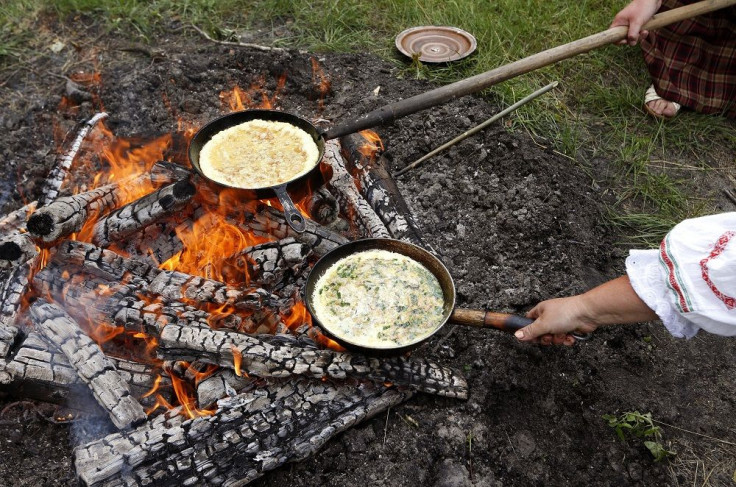Thanks To Seaweeds Ala-Oregon U, Eating Bacon Is No Longer Sinful

Bacon is on top of the list of food that people with hypertension and weight problems should avoid. This favourite breakfast fare could return to the dining table for such people, thanks to a patent by Oregon State University researchers.
The scientists found that dulse, a seaweed variety that is abundant along the Pacific and Atlantic coastlines, when processed tastes like bacon, reports KGW.com. Its bacon-like taste is just icing on top of the cake because the researchers said that it is a super-food and its nutritional value twice that of kale. Moreover, it contains 16 percent protein.
Dulse is a good source of minerals, vitamins and anti-oxidants, said Chris Langdon, researcher of Oregon State University’s Food Innovation Center. As a result, some chefs in the Portland area are trying new recipes using dulse.
The seaweed, a new strain of a succulent red marine algae that appears like translucent red lettuce, is priced at around $90 a pound in dried form. Langdon, who has been growing it the past 15 years, says, “The original goal was to create a super-food for abalone, because high-quality abalone is treasured, especially in Asia.”
The shift from growing dulse for abalone to humans was triggered by the visit of Chuck Toombs, a faculty member of the university’s College of Business to Langdon’s office. Toombs was searching for potential projects for his students.
Toombs then partnered with the university’s food centre to create dishes with dulse as the main ingredient. These include rice crackers and salad dressings. A grant from the state’s Department of Agriculture led to another partnership with Jason Ball, a research chef.
Although there are no commercial operations that raise dulse for human consumption in the US, the algae has been used in northern Europe as a food for centuries. Its powder is added to smoothies and its flakes to food.
In Hawaii, the Big Island Abalone Corporation grows abalone and dulse on a commercial scale. The researchers see a bigger potential for dulse in the vegan market.
To contact the writer, email: vittoriohernandez@yahoo.com





















